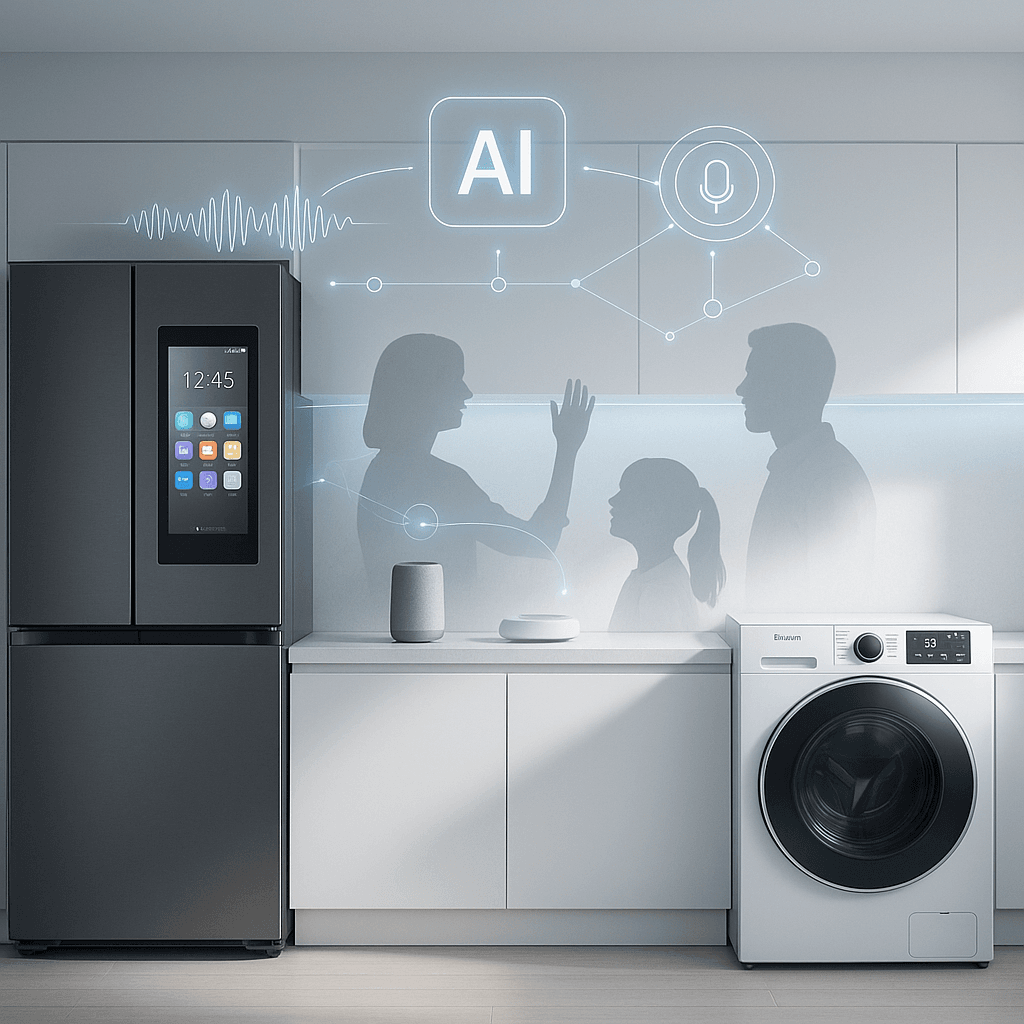Samsung is reshaping the AI home narrative at IFA 2025, showcasing how four decades of innovation led from talking refrigerators to today's Bespoke AI ecosystem. The South Korean giant's "AI Home: Future Living, Now" exhibit demonstrates why industry watchers consider Samsung the definitive smart appliance leader, with voice-enabled systems now controlling everything from laundry cycles to floor mapping.
Samsung just dropped the ultimate flex at Europe's biggest home appliance showcase. The company's IFA 2025 exhibit tells the story of how a talking refrigerator from 1985 evolved into today's AI-powered home ecosystem that can recognize your voice, map your floors, and optimize your laundry cycles without breaking a sweat. The timing couldn't be more strategic as smart home adoption accelerates and competitors scramble to catch up with Samsung's four-decade head start. "Based on Samsung's legacy of innovation, we will continue to deliver greater convenience and value in users' daily lives," Jeong Seung Moon, EVP and Head of the R&D Team at Samsung Electronics' Digital Appliances Business, told attendees. "By setting a new standard for personalized AI Home experiences, we aim to further solidify the idea that 'Samsung = AI appliances.'" [embedded image: Samsung's evolution from 1985 talking refrigerator to modern Bespoke AI lineup] The journey began with pure audacity. In 1985, Samsung introduced its Talking Refrigerator, equipped with early speech synthesis technology that offered scheduled playbacks, family memos, and door-open alerts. While competitors focused on basic cooling, Samsung envisioned appliances as communication hubs. This early bet on voice interaction laid the foundation for Bixby, Samsung's AI assistant that now serves as the intelligence backbone across refrigerators, air conditioners, washing machines, and vacuum cleaners. The real breakthrough came with Samsung's "screen appliance" concept, pioneered in 1982 with a multi-purpose microwave that doubled as a TV and security monitor. This vision materialized fully with the 2016 Family Hub refrigerator launch, featuring a 21.5-inch touchscreen and internal cameras that transformed kitchens into command centers. Through SmartThings integration, these screens evolved into home control hubs managing entire smart device ecosystems. Samsung's intelligence revolution gained momentum with the 1991 Neuro-Fuzzy washing machine, which used optical sensors to detect soil levels, load sizes, and water temperatures for automatic cycle optimization. This "sense, decide, deliver" philosophy carried forward to the 2018 QuickDrive washer's AI-based curation system and today's Bespoke AI Laundry Combo with OptiWash and AI Optimal Dry technologies. [video iframe: Bespoke AI appliances demonstration] The company's mapping prowess emerged with the 2006 Hauzen robot vacuum, using gyro sensors to calculate optimal cleaning routes. Today's Bespoke Jet Bot Combo builds on this legacy with AI-powered camera sensors that recognize objects, distinguish floor types, and navigate intelligently around obstacles. Samsung's comprehensive approach contrasts sharply with competitors' piecemeal smart home strategies. While focuses on voice assistants and emphasizes ecosystem integration, Samsung owns the entire appliance experience from hardware to AI software. The company's Bixby Voice ID feature can now register up to six users, providing personalized responses across Family Hub refrigerators and connected appliances. This level of household customization represents a significant advantage over generic smart home platforms. Market analysts see Samsung's IFA 2025 showcase as a defensive play against rising competition from Chinese manufacturers and established players like and . The "AI Home: Future Living, Now" theme signals Samsung's intent to maintain premium positioning while smart home technology becomes commoditized. The timing alignWs perfectly with growing consumer acceptance of AI-powered home automation, particularly among younger demographics who view voice-controlled appliances as standard features rather than luxury add-ons. Samsung's 40-year narrative provides crucial differentiation in a crowded market where newcomers lack historical innovation credibility. Industry watchers expect Samsung's IFA presentation to influence upcoming product roadmaps across the appliance sector, particularly regarding AI integration standards and voice recognition capabilities. The company's comprehensive ecosystem approach may force competitors to accelerate their own smart home platform development or pursue strategic partnerships to match Samsung's end-to-end experience.












